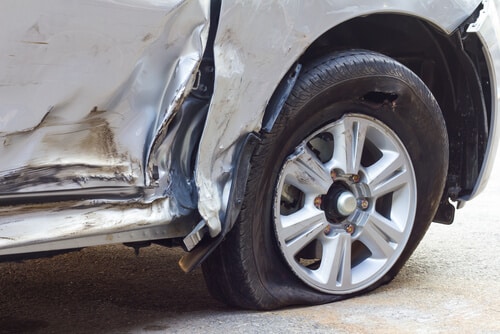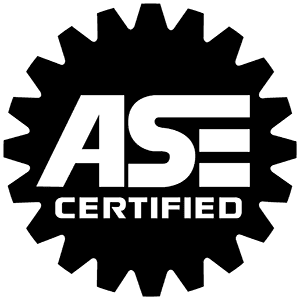Bad driving habits, no matter how good of a driver we think we are, we all have them. While some can lead to mild fender benders, others can result in a major collision that means your car is due for substantial repairs.
At Kwik Kar, we may not handle the serious bodywork, but we can help if your vehicle’s tires or brakes feel a bit out of tune after an accident or road incident.
While we always love to lend a helping hand, we know you’d rather avoid getting in accidents altogether. So, let’s dig into some of the most common bad driving habits that could bring your car to our driveway for auto repair!
Distracted Driving
Whether you’re talking on the phone, eating a Double Double, rubbernecking over a nearby accident, or even trying to pay attention to a child in the car, any distraction that takes your eyes off the road could be a distraction that leads to an accident.
When you’re behind the wheel, keep your eyes, ears, and mind on the road and what’s happening around your vehicle. The distraction can wait. Trust us; you and your car will thank us later.
Aggressive Driving
Aggressive driving is a dangerous behavior that can lead to serious consequences. It involves speeding, tailgating, weaving in and out of traffic, running red lights or stop signs, and other reckless maneuvers that put you and others on the road at risk.
Aggressive driving not only increases the chances of an accident occurring but also heightens the severity of any damage caused due to its high speeds.
To ensure safety for everyone on the roads, it’s important to recognize your own aggressive tendencies and do what you can to avoid them.
Start by giving yourself extra time to get to your destination, throwing on some calming music, and taking some deep breaths when you start to feel your inner Hulk come out.
Drowsy Driving
Drowsy driving is a serious and potentially deadly problem that can occur when people drive while fatigued or sleepy. Every year, thousands of accidents are caused by drivers who have fallen asleep at the wheel or made mistakes due to impaired judgment.
Drowsy driving can be just as dangerous as distracted or drunk driving, so it’s important for all drivers to know how to avoid it. The best way to prevent drowsy driving is to get enough rest before getting behind the wheel. Essentially, if you feel tired, don’t drive. Be prepared to call a ride share or ask a friend to get you home.
However, other strategies may help reduce fatigue and improve alertness on the road if you must be behind the wheel. These include taking regular breaks while driving, and avoiding heavy meals before long drives.
If you find yourself yawning, blinking, rubbing your eyes, or hitting that rumble strip on the road, it’s time to pull over, because you’re officially fatigued.
Headphones and Earbuds
If your stereo goes out, don’t risk getting your music fix through headphones or earbuds. Driving with earbuds is dangerous and can lead to serious consequences. In some states, driving while wearing headphones is illegal! When drivers use earbuds, they are unable to hear important sounds like sirens and horns from other vehicles or emergency personnel.
They may also be distracted from the task of driving by the music in their ears, leading them to miss important visual cues such as stop signs or traffic signals. This can result in an increased risk of accidents and injury for both the driver and others on the road.
In general, loud music while driving increases the risk of poor driving performance and could lead to traffic violations, aggressive driving, and potential accidents.
In short, stay safe. Keep the earbuds out and the music or hands-free phone call at a reasonable volume.
Bad Driving Habits Lead to Auto Repairs
If your bad driving habits lead to some premature car maintenance needs, Kwik Kar can help. Our repair shop can handle brake repairs, tire replacements, wheel alignments and other repairs your vehicle may have.
Contact us today if you have questions about the extent of damage to your vehicle and how we can help. We’re ready to get you back on the road again!




